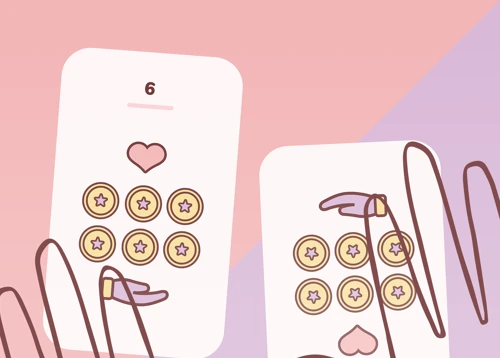When it comes to reading tarot cards, there is often a debate between intuition and traditional interpretations. Many tarot enthusiasts wonder how to navigate the meaning of reversed tarot cards, as they can differ from their upright counterparts. Understanding Reversed Tarot Cards is essential to gaining a holistic view of a reading. In this article, we will explore the concept of reversed tarot cards, the traditional interpretations associated with them, and the role of intuition in deciphering their messages. We will also provide tips for striking a balance between intuition and traditional interpretations, as well as offer solutions to common challenges that arise when reading reversed cards. So, whether you’re a seasoned tarot reader or just starting your journey, join us as we dive into the intriguing world of reversed tarot card readings.
Contents
- Understanding Reversed Tarot Cards
- Intuition and Reversed Tarot Cards
- Striking a Balance
- Tips for Reading Reversed Tarot Cards
- Common Challenges and Solutions
- Interpreting Specific Reversed Cards
- Embracing your Personal Reading Style
- Conclusion
-
Frequently Asked Questions
- 1. Can I ignore reversed tarot cards in a reading?
- 2. How do reversed tarot cards affect the overall meaning of a reading?
- 3. Should I rely solely on traditional interpretations for reversed tarot cards?
- 4. How can I enhance my intuition when reading reversed tarot cards?
- 5. What if my intuition contradicts the traditional interpretation of a reversed card?
- 6. Can I use different tarot decks for reading reversed cards?
- 7. How can journaling and reflection enhance my understanding of reversed tarot cards?
- 8. Are there any resources or communities I can turn to for guidance on reading reversed tarot cards?
- 9. How do I avoid overreliance on intuition when reading reversed tarot cards?
- 10. Can reversed tarot cards indicate positive outcomes?
- References
Understanding Reversed Tarot Cards
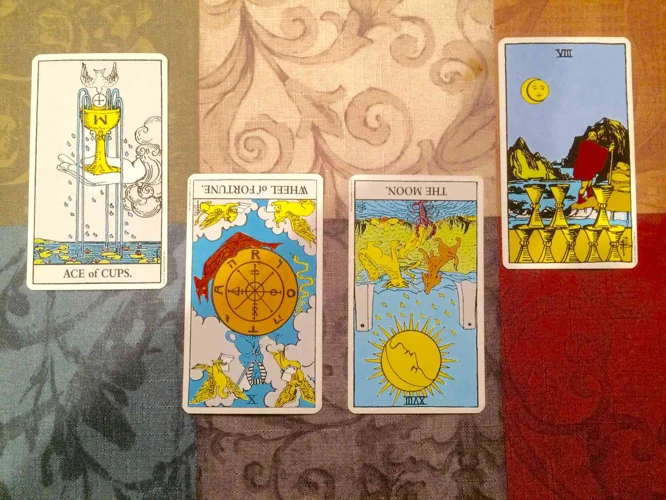
Understanding reversed tarot cards is a crucial aspect of developing proficiency in tarot reading. Reversed cards, also known as upside-down cards, introduce a layer of complexity and nuance to a tarot spread. 1. What are Reversed Tarot Cards? Reversed tarot cards are cards that appear in the reversed position during a reading, meaning they are upside down. This can alter the interpretation of the card’s symbolism and message. 2. Traditional Interpretations of Reversed Tarot Cards provide a framework for understanding these cards, as they often signify challenges, blockages, or a redirection of energy. However, it is essential to note that interpretations may vary between tarot decks and individual readers. For a more in-depth exploration of symbolism and intuition in reversed tarot card readings, you can check out this article on how to use symbolism to enhance intuition with reversed tarot cards.
1. What are Reversed Tarot Cards?
Reversed tarot cards are a fundamental aspect of tarot reading that adds depth and complexity to the interpretation of a spread. When a tarot card appears in the reversed position, it means that the card is upside down. Reversed cards offer an alternative perspective and can change the meaning of the card from its upright counterpart. The reversed position can indicate a blockage, a delay, or a need for further reflection. It invites the reader to explore the hidden or subconscious aspects of the card’s symbolism. However, it’s important to note that the interpretation of reversed tarot cards can vary between tarot decks and individual readers. Some readers perceive reversals as a negative influence, while others view them simply as a shift in energy. Regardless of interpretation, reversed cards serve as a reminder that life is not always straightforward and predictable. To delve deeper into the role of intuition in interpreting reversed tarot cards, you can visit this article on the power of intuition in tarot readings with reversed cards. Developing a nuanced understanding of reversed tarot cards enables readers to explore the full range of meanings and possibilities in a tarot reading.
2. Traditional Interpretations of Reversed Tarot Cards
Traditional interpretations of reversed tarot cards provide valuable insights into their meanings and implications within a reading. Here are some key points to consider when exploring the topic of traditional interpretations:
1. Opposite Meanings: In traditional tarot interpretations, reversed cards often suggest the opposite or a challenging aspect of their upright meanings. For example, while an upright card might signify success, the reversed version could indicate obstacles or setbacks.
2. Blocked Energy: Reversed tarot cards are commonly associated with energy blockages and resistance. They may symbolize areas of stagnation, internal conflicts, or external influences hindering progress.
3. Delays and Reversals: Reversed cards can also imply delays or unexpected changes in the situation being addressed. They might suggest a need for patience and adaptability when faced with uncertainties or disruptions.
4. Shadow Aspects: Reversed tarot cards often bring attention to the shadow or hidden aspects of a situation. They may signify underlying fears, insecurities, or unresolved issues that need to be acknowledged and addressed.
5. Intensified Energies: In some cases, reversed cards can intensify the energy of their upright counterparts. This amplification could indicate heightened emotions, conflicts, or a need for extra caution in the area represented by the card.
It’s important to note that traditional interpretations of reversed tarot cards may vary between tarot decks and individual readers. These interpretations serve as a foundation, but it’s always valuable to explore your own intuition when interpreting the cards. To delve deeper into the power of intuitive tarot readings with reversed cards, you can check out this article on unveiling the power of intuitive tarot readings with reversed cards.
Intuition and Reversed Tarot Cards
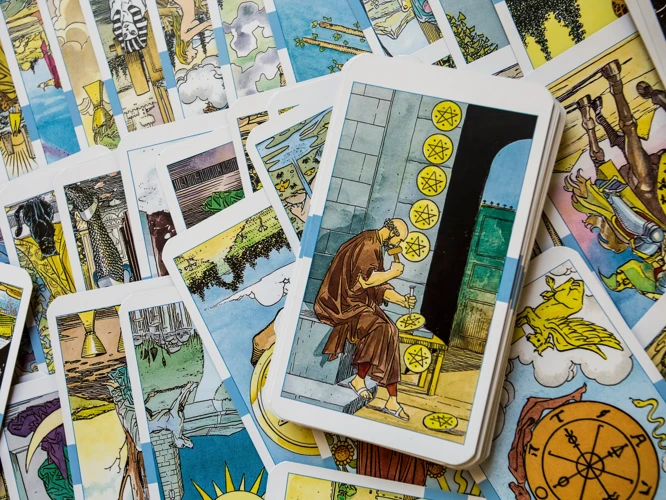
Intuition plays a significant role in interpreting reversed tarot cards and unlocking their deeper meanings. 3. Trusting Your Intuition is the first step in embracing the power of intuitive tarot readings. Intuition allows the reader to tap into their inner wisdom and connect with their subconscious mind, providing valuable insights that may not be found in traditional interpretations. Developing and honing this intuitive ability is crucial for accurate and insightful tarot readings. 4. Developing Your Intuition for Reversed Tarot Card Readings involves practicing mindfulness, meditation, and deepening your connection with the cards. By exploring and understanding your personal relationship with the imagery, symbolism, and energy of the tarot, you can cultivate a stronger intuitive sense. For further exploration of the link between intuition and tarot, you can refer to this insightful article on unveiling the power of intuitive tarot readings with reversed cards. Remember, your intuition can serve as a guide that complements and enhances the traditional interpretations of reversed tarot cards.
3. Trusting Your Intuition
Trusting your intuition is a crucial aspect of reading reversed tarot cards. While traditional interpretations provide a solid foundation, your intuition serves as a guide in deciphering the unique meaning behind each card. To trust your intuition, start by quieting your mind and allowing yourself to connect with the energy of the cards. Pay attention to your initial thoughts, feelings, and sensations that arise as you observe the reversed card. Acknowledge any intuitive impressions that come to you and consider how they may relate to the card’s symbolism and the context of the reading.
It’s important to remember that everyone’s intuitive process is unique, so don’t compare your intuition to others. Trusting your own inner guidance is key. Keep a journal to record your intuitive insights and reflect on their accuracy over time. Practice regularly and cultivate a sense of trust in yourself and the messages you receive. As you become more comfortable with listening to your intuition, your readings will become more personalized and insightful.
When it comes to interpreting reversed tarot cards, your intuition can offer valuable insights that may diverge from traditional interpretations. Don’t be afraid to explore alternative meanings and tap into your intuitive wisdom. Trusting your intuition will allow you to bring your unique perspective and intuitive gifts to each reading, creating a more meaningful and authentic experience for both you and the querent.
4. Developing Your Intuition for Reversed Tarot Card Readings
Developing your intuition is a powerful tool when it comes to reading reversed tarot cards. Here are some strategies to cultivate and enhance your intuitive abilities specifically for interpreting reversed tarot card readings:
1. Build a Strong Connection with Your Tarot Deck: Spend time bonding with your tarot deck and familiarize yourself with its imagery, symbolism, and energy. This connection will deepen your intuitive understanding of the cards and their reversed meanings.
2. Practice Daily Meditation: Regular meditation helps quiet the mind and enhances your receptivity to subtle energies. Set aside dedicated time each day to focus on your breath, clear your thoughts, and open yourself to intuitive insights related to reversed tarot cards.
3. Engage in Intuitive Journaling: Keep a journal specifically for exploring your intuitive impressions during reversed tarot card readings. Write down your initial thoughts, feelings, and images that come to mind when you encounter a reversed card. Reflect on these entries later to deepen your understanding and track your progress.
4. Utilize Divination Tools: Incorporate divination tools like oracle cards, pendulums, or crystals to further enhance your intuitive insights. These tools can help you access deeper levels of understanding and provide additional clarity when interpreting reversed tarot cards.
5. Trust Your Gut Feeling: Remember that your intuition is unique to you. Pay attention to your gut feelings and initial impressions when you encounter a reversed card. Trust in your innate wisdom and allow it to guide the interpretation of the card’s message.
6. Experiment with Different Reading Techniques: Explore various reading techniques, such as intuitive spreads or intuitive storytelling. These approaches allow your intuition to flow freely, enabling you to uncover deeper meanings and insights when working with reversed tarot cards.
By consistently practicing and honing your intuitive skills, you will develop a stronger connection to the reversed tarot cards and their nuanced interpretations. Remember that intuition is a personal and ever-evolving journey, and it takes time and patience to develop. Embrace your unique intuitive style and let it guide you in your reversed tarot card readings.
Striking a Balance
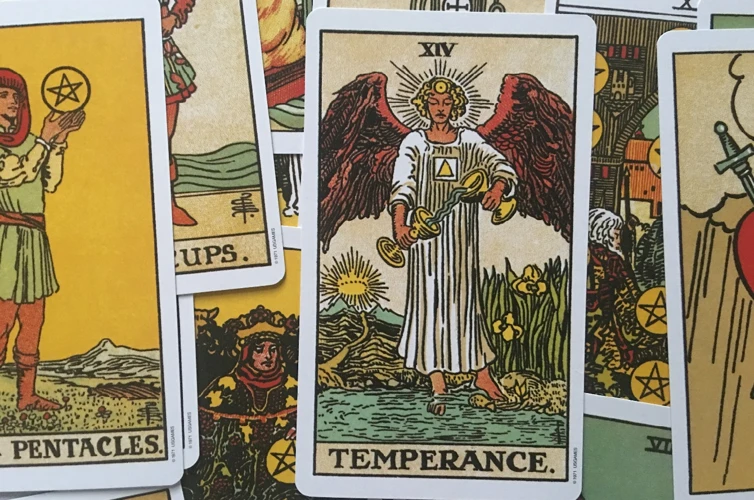
When it comes to reading reversed tarot cards, finding a balance between intuition and traditional interpretations is key to gaining a comprehensive understanding of the message. 5. Combining Intuition and Traditional Interpretations allows the reader to tap into their intuitive abilities while still honoring the established meanings of the cards. This can be achieved by first considering the traditional interpretations of the reversed cards and then allowing intuition to provide additional insights and nuances. 6. Recognizing Patterns and Symbols is another way to strike a balance. By observing recurring themes, symbols, or patterns across multiple reversed cards in a reading, the reader can extract a deeper meaning that goes beyond individual card interpretations. 7. Incorporating Reverse Card Meanings into the Overall Reading involves considering the reversed cards within the context of the entire spread, allowing them to contribute to the overall narrative and story being told. By finding this delicate balance between intuition and tradition, readers can unlock a richer and more layered interpretation of the reversed tarot cards.
5. Combining Intuition and Traditional Interpretations
Combining intuition and traditional interpretations is a powerful approach when reading reversed tarot cards. By embracing both aspects, you can uncover deeper meanings and insights. Here are some strategies for effectively combining intuition and traditional interpretations:
1. Trust your intuition: Begin by connecting with your intuition and allowing it to guide your interpretation. Pay attention to your initial thoughts, feelings, and impressions when you see a reversed card. Trusting your intuition can provide unique insights that go beyond traditional interpretations.
2. Understand traditional meanings: Familiarize yourself with the traditional interpretations associated with reversed tarot cards. These interpretations can serve as a foundation to build upon when conducting readings. Consider the symbolism, imagery, and traditional meanings of each card to gain a comprehensive understanding.
3. Look for patterns and symbols: Analyze the patterns and symbols that emerge in your readings. Take note of recurring themes or symbols that appear in multiple reversed cards. These patterns can offer valuable insights into the overall message of the reading and help validate your intuition.
4. Interpret reversed cards within the context of the entire spread: Consider the surrounding cards in the spread when interpreting reversed cards. Take into account the energy and dynamics flowing between the cards. This holistic approach ensures that you’re not solely relying on intuition or traditional interpretations but rather integrating both.
5. Trust your instincts: Ultimately, trust your instincts and intuition as you navigate the world of reversed tarot cards. Your intuition is a powerful tool that can provide personalized guidance and unique interpretations of the cards.
By combining intuition and traditional interpretations, you can create a well-rounded and insightful reading experience. This allows you to tap into the wisdom of the tarot while still honoring your intuitive gifts. Remember, practice and experimentation are key to finding the perfect balance between intuition and tradition in your tarot readings.
6. Recognizing Patterns and Symbols
Recognizing patterns and symbols is a key skill in reading reversed tarot cards. When faced with a reversed card, it’s essential to examine the cards surrounding it. Look for recurring themes, similar symbols, or repeating numbers to gain deeper insight into the overall message of the reading. allows you to uncover hidden connections and discern patterns that might not be immediately apparent.
One approach is to create a visual representation of the tarot spread, either by using a tarot layout sheet or simply drawing the cards on a piece of paper. This visual aid can help you identify patterns more easily. Look for patterns in the suits, such as an abundance of Cups suggesting emotional themes, or a cluster of Swords indicating mental challenges.
Additionally, pay attention to recurring symbols across the cards. Symbols like keys, scales, or animals can provide additional layers of meaning. For example, the presence of a snake symbol might indicate transformation or healing, while a key could symbolize unlocking hidden potential or accessing new opportunities. Take note of how these symbols interact and influence each other within the context of the reading.
Consider the numerological significance within the cards. Each number in the tarot deck carries its own energetic vibration and meaning. Explore the relationships between the numbers present and analyze how they contribute to the overall narrative. For instance, cards with the number four may indicate stability and structure, while fives might represent change or conflict.
Remember, trusting your intuition is vital when recognizing patterns and symbols. While there may be traditional interpretations associated with certain symbols or patterns, always stay open to your unique insights and guidance. Allow your intuition to guide you as you interpret the symbolism and uncover the messages hidden within the tarot spread. By honing your ability to recognize patterns and symbols, you will enhance your ability to provide accurate and insightful readings with reversed tarot cards.
7. Incorporating Reverse Card Meanings into the Overall Reading
Incorporating reverse card meanings into the overall reading is an important step to gain a comprehensive understanding of a tarot spread. Here are some strategies to effectively integrate the messages of reversed cards into your interpretation:
1. **Observe the Energy Shift**: When a card appears in the reversed position, it indicates a shift in the energy and a deviation from the upright meaning. Pay attention to the contrasting energy and consider how it may alter the overall theme or message of the reading.
2. **Note Symbolic Cues**: Reversed cards can offer valuable symbolic cues that shed light on the situation at hand. Analyze the visual elements, colors, and imagery of the card to decipher the hidden meanings. These subtle cues can provide additional insights and context.
3. **Consider Opposing Forces**: Sometimes, reversed cards present opposing forces or conflicting aspects within a reading. Take into account how these opposing energies interact and influence each other. This dynamic can unveil the underlying tension or internal struggle within the querent’s situation.
4. **Pay Attention to Card Positioning**: The positioning of a reversed card in a spread can provide clues about its significance. Consider its placement in relation to other cards and the specific position it occupies, such as past, present, or future. This can help determine the timing or prominence of the reversed card’s influence.
5. **Emphasize Intuition**: While traditional interpretations offer valuable guidance, remember to trust your intuition when interpreting reversed cards. Your inner knowing and connection to the cards can provide unique insights that go beyond the standard meanings. Listen to your instincts and allow them to guide you in weaving the narrative of the reading.
Incorporating reverse card meanings into the overall reading enriches the depth and complexity of your tarot interpretations. By employing these strategies and combining traditional interpretations with your intuition, you can unlock a deeper level of understanding that reflects the intricacies of the querent’s journey.
Tips for Reading Reversed Tarot Cards
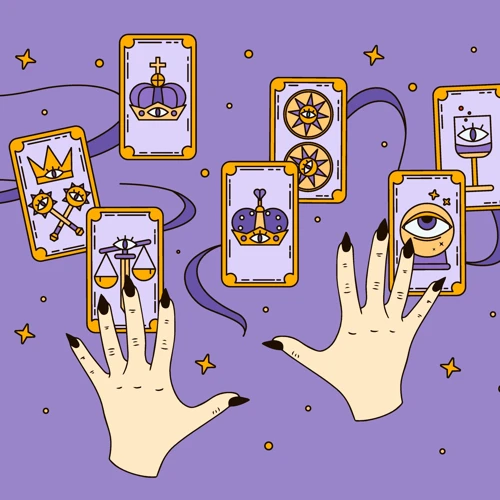
When it comes to reading reversed tarot cards, there are several tips and strategies that can enhance your interpretation skills. 8. Use Multiple Tarot Decks to gain different perspectives on the reversed cards. Each deck may offer unique symbolism and insights, allowing you to broaden your understanding. 9. Journaling and Reflecting on Readings can help you track patterns, capture intuitive impressions, and analyze your interpretations over time. Writing down your thoughts and observations can greatly enhance your understanding of reversed card meanings. Additionally, 10. Seeking the Wisdom of Experienced Readers is a valuable approach. Engaging in discussions, participating in tarot communities, or consulting with experienced readers can provide new insights and perspectives. By embracing these tips, you can cultivate a deeper connection with reversed tarot cards and enhance your overall reading practice.
8. Use Multiple Tarot Decks
Using multiple tarot decks can be an effective approach to gain deeper insights and enhance your interpretation skills when reading reversed tarot cards. Incorporating different decks into your practice can provide a broader range of perspectives, symbolism, and imagery to draw from. Here are a few reasons why using multiple tarot decks can be beneficial:
- Expanded Symbolism: Each tarot deck carries its own unique symbolism and artistic style. By working with multiple decks, you expose yourself to a wider variety of symbols and imagery. This expanded symbolism can offer new layers of meaning when interpreting reversed cards and help you develop a deeper understanding of their messages.
- Stimulates Creativity: Using different tarot decks encourages creativity and flexibility in your readings. Each deck may evoke different emotions and associations, sparking fresh ideas and interpretations. This can prevent stagnation and bring a renewed level of excitement to your tarot practice.
- Personal Connection: Different tarot decks may resonate differently with you on a personal level. By exploring various decks, you can find ones that intuitively align with your energy and style of reading. This connection can enhance your intuition and make the process of interpreting reversed cards more natural and intuitive.
- Comparative Analysis: Working with multiple tarot decks allows you to compare and contrast interpretations across different systems and traditions. This comparative analysis can deepen your understanding of the traditional meanings associated with reversed cards and help you identify patterns or themes that transcend individual decks.
Remember, while using multiple tarot decks can be beneficial, it’s important to develop a level of familiarity and understanding with each deck before incorporating them into your readings. Allow yourself time to connect with each deck individually, exploring its nuances and establishing a working relationship. This will enable you to tap into the full potential of using multiple tarot decks in your reversed card interpretations.
9. Journaling and Reflecting on Readings
Journaling and reflecting on tarot readings is a powerful practice that can enhance your understanding of reversed tarot cards. By keeping a tarot journal, you create a space to document your readings, record your intuition, and analyze the patterns and themes that emerge. Here are some ways to incorporate journaling into your tarot practice:
A. Record Your Card Drawings: After a reading, write down the cards you pulled, noting whether any of them were reversed. Describe the visual imagery, the emotions they evoke, and any initial thoughts or impressions you have.
B. Reflect on Your Intuition: Take time to reflect on your initial intuitive responses to the cards. Write down any intuitive hits or insights you had during the reading. Reflect on how these intuitive messages relate to the reversed cards and their traditional interpretations.
C. Analyze Patterns and Themes: Look for patterns and recurring themes in your readings. Pay attention to the frequency of reversed cards in relation to specific situations or questions. This analysis can help you develop a deeper understanding of the meaning of reversed cards in your readings.
D. Explore Personal Associations: Consider your personal associations with the symbols and imagery in the reversed cards. Reflect on how these symbols resonate with your own experiences and emotions. This personalized approach can add depth and richness to your interpretations.
By consistently journaling and reflecting on your readings, you can start to recognize patterns, strengthen your intuition, and develop your unique interpretation style. It also allows you to track your progress as a tarot reader and gain insights into your own growth and development. So grab a journal, a pen, and embark on a transformative journey with your tarot cards.
10. Seek the Wisdom of Experienced Readers
When it comes to reading reversed tarot cards, seeking the wisdom of experienced readers can be incredibly helpful. Here are some reasons why you should consider 10. Seek the Wisdom of Experienced Readers:
- Gaining insights from their expertise: Experienced readers have spent years developing their skills and honing their intuitive abilities. They have likely encountered a wide range of reversed tarot card interpretations and can offer valuable insights and alternative perspectives. Their knowledge can help you deepen your understanding of reversed tarot cards and expand your interpretation abilities.
- Learning from their personal experiences: Seasoned tarot readers often have their own unique stories and personal experiences to share. They may have encountered specific challenges or encountered certain patterns when working with reversed cards. By listening to their stories, you can gain a deeper appreciation for the complexities of reversed tarot card readings and learn from their lessons.
- Discovering new techniques and approaches: Experienced readers have likely developed their own techniques and approaches for working with reversed tarot cards. They may use specific spreads, rituals, or exercises to enhance their readings of reversed cards. By seeking their wisdom, you can learn and integrate these techniques into your own practice, further refining your skills.
- Receiving guidance and validation: In the realm of tarot reading, it can be immensely reassuring to seek guidance and validation from experienced readers. They can provide valuable feedback on your interpretations and help you identify any blind spots or biases that may be affecting your readings. This guidance can enhance your confidence in working with reversed tarot cards.
- Connecting with a supportive community: Seeking the wisdom of experienced readers opens up opportunities to connect with a supportive community of like-minded individuals. By engaging in discussions, joining forums, or attending workshops led by experienced readers, you can interact with others who share your passion for tarot and gain inspiration from their journeys.
Remember, seeking the wisdom of experienced tarot readers is not about relying solely on their interpretations, but rather embracing the knowledge and insights they offer as a means to enhance your own intuitive abilities and develop a well-rounded approach to reading reversed tarot cards.
Common Challenges and Solutions
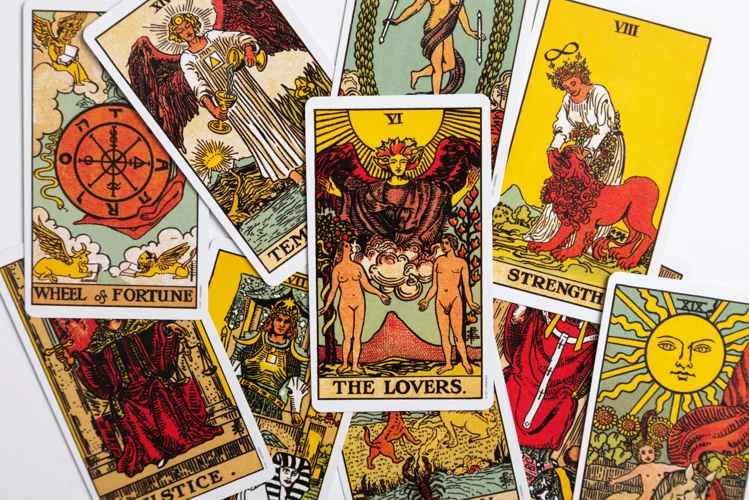
Navigating the world of reversed tarot cards can present its own set of challenges, but fear not! With awareness and practice, these challenges can be overcome. 11. Overreliance on Intuition is a common challenge that tarot readers face when interpreting reversed cards. It’s important to strike a balance and not solely rely on intuition, but also consider traditional interpretations for a well-rounded reading. 12. Sticking Too Strictly to Traditional Interpretations is another challenge that can limit the depth of a reading. While traditional interpretations provide a foundation, it’s crucial to allow room for intuitive insights and personal interpretation. 13. Balancing Contrasting Messages in a Reading is yet another obstacle that arises when faced with multiple reversed cards that convey different meanings. In such cases, it’s essential to look for connections, patterns, and overarching themes to harmonize the messages. By acknowledging these challenges and implementing solutions, tarot readers can navigate the intricacies of reversed card readings with confidence and finesse.
11. Overreliance on Intuition
A common challenge when reading reversed tarot cards is the overreliance on intuition. While intuition is an invaluable tool in tarot reading, it is essential to maintain a balance and not let it overshadow other important aspects of interpretation. Here are a few tips to address this challenge:
- Ground yourself: It’s important to stay grounded and centered before and during a reading. This can be done through meditation, deep breathing, or other grounding techniques. By doing so, you can access your intuition without being overwhelmed by it.
- Validate with traditional meanings: While trusting your intuition is important, it is also helpful to refer to traditional interpretations of reversed tarot cards. Validate the messages you receive through your intuition by comparing them to the established meanings associated with the cards.
- Journal your readings: Keeping a tarot journal can help you reflect on the accuracy and effectiveness of your intuitive interpretations. Note down your initial impressions and compare them to the actual outcomes or feedback received. This practice helps you refine and deepen your understanding of your intuitive abilities.
- Seek feedback: Share your tarot readings with trusted friends or fellow tarot readers. Getting feedback can offer valuable insights and different perspectives on your intuitive interpretations. It’s an opportunity to learn and grow as a tarot reader.
- Practice self-awareness: Be mindful of any biases or personal projections that may influence your intuitions. Developing self-awareness helps you differentiate between genuine intuitive guidance and personal biases or desires.
- Continued learning: Tarot reading is an ongoing process of learning and growth. Invest time in studying symbolism, astrological correspondences, and the traditional meanings of tarot cards. This knowledge provides a solid foundation to complement your intuitive insights.
Remember, a balanced approach between intuition and traditional interpretations leads to a well-rounded and accurate tarot reading experience.
12. Sticking Too Strictly to Traditional Interpretations
Sticking too strictly to traditional interpretations of reversed tarot cards can limit the depth and richness of your readings. While traditional interpretations provide a valuable foundation, it is important to remember that tarot reading is an intuitive and personal practice. Here are some considerations to keep in mind when it comes to 12. Sticking Too Strictly to Traditional Interpretations:
- Embrace Flexibility: Allow yourself to be open to new possibilities and interpretations when reading reversed cards. Sometimes, the traditional meaning may not fully resonate with the unique circumstances of the reading or the individual seeking guidance.
- Trust Your Intuition: Intuition plays a significant role in tarot reading, and sometimes your gut instinct may lead you in a different direction than the traditional interpretation. Allow yourself to tap into your intuition and trust the messages it reveals.
- Consider the Question and Context: The question asked by the querent and the surrounding cards in the reading can provide valuable clues as to how a reversed card should be interpreted. Take into account the specific context and the overall narrative that is unfolding in the reading.
- Explore Symbolism: Dive deeper into the symbolism of the card and how it relates to its reversed position. Consider the imagery, colors, and overall themes presented in the card to gather further insights and meanings.
- Practice and Experience: Overtime, as you gain more experience with tarot readings, you will develop a deeper understanding of the cards and their reversed meanings. Trust in your own growth and allow your interpretations to evolve with time and practice.
Remember, while it is valuable to respect traditional interpretations, there is also room for personal interpretation and intuitive insights when working with reversed tarot cards. Don’t be afraid to explore new perspectives and allow your own unique reading style to shine through. Tarot reading is a beautiful blend of tradition and intuition, and finding a balance between the two will enhance the depth and accuracy of your readings.
13. Balancing Contrasting Messages in a Reading
Balancing contrasting messages in a tarot card reading is a skill that takes practice and intuition. When faced with contradictory interpretations of cards, it’s important to approach the reading with an open mind and a willingness to explore multiple perspectives. One approach to finding balance is to closely examine the surrounding cards and the overall theme of the reading. Look for patterns, connections, and underlying threads that may help reconcile the conflicting messages. Trust your intuitive insights, as they can guide you towards a deeper understanding of the cards’ combined meanings. Additionally, consider the context of the reading and the specific question or situation at hand. This can provide valuable clues as to which interpretation may hold more weight in the given circumstances. It is also helpful to reflect on the emotions and intuitive sensations that arise during the reading. Sometimes, the energy surrounding a certain card may resonate more strongly with your intuition, offering a clue as to which message to prioritize. Remember, tarot readings are not solely about predicting the future, but rather about gaining insight, clarity, and guidance. By embracing the paradoxes and complexities that may arise, you can cultivate a more holistic and nuanced approach to interpreting contrasting messages in a reading.
Interpreting Specific Reversed Cards
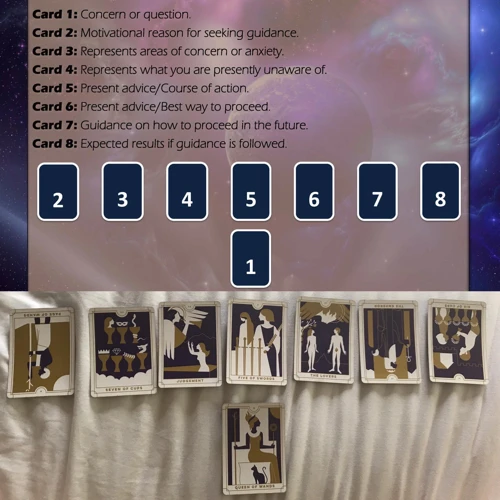
Interpreting specific reversed cards in a tarot reading requires a deep understanding of each card’s unique symbolism and how it may be influenced by its reversed position. 14. The Fool Reversed, for instance, can indicate recklessness, impulsivity, or a lack of direction. It serves as a reminder to exercise caution and consider the consequences of one’s actions. 15. The High Priestess Reversed suggests hidden knowledge, secrets, or a need for introspection. It encourages the seeker to trust their intuition and explore their inner wisdom. Lastly, 16. The Death Reversed signifies resistance to change or a stagnant situation. It signifies the need for letting go and embracing transformation. These interpretations provide a glimpse into the depth and complexity of reversed tarot cards, but it’s important to remember that context and surrounding cards also play a significant role in deciphering their messages.
14. The Fool Reversed
When it comes to interpreting “The Fool Reversed,” a distinct shift in energy and meaning occurs compared to its upright counterpart. Here are some key points to consider when encountering The Fool Reversed:
- 1. Risk-taking gone awry: The Fool card represents spontaneity and new beginnings when upright. However, when reversed, it can indicate impulsive behavior or taking unnecessary risks without considering the consequences. It serves as a reminder to exercise caution and think things through before making any bold moves.
- 2. Foolishness and naivety: Reversed, The Fool can symbolize a lack of wisdom or naivety in a situation. It suggests that you may need to reassess your approach and avoid being too gullible or easily led astray. This card advises exercising discernment and learning from past experiences.
- 3. Stagnation or resistance to change: The Fool Reversed may signify a fear of change or a reluctance to embrace new opportunities. It suggests a need to break free from self-imposed boundaries and explore different perspectives. It encourages you to step out of your comfort zone and embrace growth.
- 4. Reversal of fortune: In certain circumstances, The Fool Reversed can indicate a temporary setback or unexpected challenges. It advises you to proceed with caution, reevaluate your decisions, and be prepared for detours or obstacles along your path.
Interpreting reversed tarot cards like The Fool requires a blend of intuition and familiarity with traditional card meanings. Trusting your instincts and considering the context of the overall reading is crucial for a comprehensive interpretation of The Fool Reversed in a tarot spread.
15. The High Priestess Reversed
When the High Priestess card appears in a reversed position, it indicates a disruption in intuition and inner wisdom. The High Priestess Reversed suggests that you may be feeling disconnected from your intuition and struggling to trust your inner voice. It is essential to pay attention to your instincts and find ways to reconnect with your spirituality and intuition. This reversal may also signify hidden knowledge or secrets that are being blocked or suppressed. It is important to be cautious of deceit or manipulation from others. The High Priestess Reversed encourages you to explore and uncover your subconscious mind, as there may be unresolved issues or buried emotions that need attention. Take the time to reflect, meditate, and engage in practices that promote self-awareness. Trust your instincts and seek guidance from within to regain balance and tap into your intuitive wisdom. Remember that the reversal of the High Priestess card is an opportunity for growth and personal transformation.
16. The Death Reversed
When interpreting the Death card in its reversed position, it is crucial to approach it with an open mind and a nuanced understanding of its symbolism. The Death Reversed does not signify physical death but rather symbolizes endings, transformation, and necessary changes that are being resisted or postponed. In this context, the reversed Death card may indicate a fear of change, clinging to the past, or being stuck in a stagnant situation. It calls for the recognition that change is inevitable and resisting it may hinder personal growth and progress. The reversed Death card can serve as a gentle nudge to let go of old patterns, beliefs, or relationships that no longer serve a purpose. It encourages embracing the natural cycles of life and finding the courage to release what is no longer needed. It is essential to note that the Death card, whether upright or reversed, signifies the potential for new beginnings and opportunities that arise from the clearing away of the old. When encountering the Death Reversed card, it is crucial to approach it with a sense of curiosity, openness, and an understanding that letting go can lead to positive transformation and growth.
Embracing your Personal Reading Style
When it comes to reading tarot cards, embracing your personal reading style is key to developing a unique and authentic approach. 17. Honoring Your Intuitive Gifts is an essential aspect of this process. Every tarot reader possesses their own intuitive gifts and abilities that can greatly enhance their understanding of reversed tarot cards. Trusting your intuition and allowing it to guide your interpretations can lead to deeper insights and connections within a reading. Additionally, 18. Finding Meaning in Unconventional Ways allows you to think outside the box and explore alternative interpretations. This could involve drawing inspiration from art, literature, or personal experiences to infuse your readings with rich layers of meaning. Embracing your personal reading style not only brings a sense of authenticity but also allows for a more profound connection with the cards and their messages.
17. Honoring Your Intuitive Gifts
Honoring your intuitive gifts is a crucial element when it comes to reading reversed tarot cards. Here are some ways you can embrace and nurture your intuition:
1. Trust Yourself: Have confidence in your instincts and trust that your intuition will guide you in the right direction. Remember that you possess unique insights and interpretations that can bring depth and meaning to your readings.
2. Practice Meditation: Regular meditation can help you quiet your mind, enhance your intuition, and connect with your inner wisdom. Set aside dedicated time each day to cultivate a calm and receptive state of mind.
3. Work with Crystals: Crystals have been used for centuries to enhance intuitive abilities. Experiment with crystals such as amethyst, lapis lazuli, or clear quartz to amplify your intuitive energy during readings.
4. Pay Attention to Your Body: Your body often provides subtle signals and sensations that can guide your interpretations. Take notice of any physical sensations or emotions that arise during a reading, as they may hold valuable insights.
5. Keep an Intuition Journal: Document your intuitive impressions, hunches, and insights in a dedicated journal. This practice allows you to track and validate your intuitive abilities over time.
6. Embrace Symbolism: Allow your intuition to weave its way through the symbolism of the tarot cards. Notice the images, colors, and details, and trust that your intuition will reveal hidden meanings and messages.
Remember that honoring your intuitive gifts is a personal and ongoing journey. Each reading provides an opportunity to deepen your relationship with your intuition and develop a unique style of interpretation. Embrace your innate abilities and allow them to flourish as you explore the fascinating world of reversed tarot cards.
18. Finding Meaning in Unconventional Ways
Finding meaning in unconventional ways is an exciting approach to tarot card readings that taps into your intuition and expands your interpretation skills. When faced with a reversed tarot card, instead of relying solely on the traditional interpretations, consider exploring alternative meanings that may resonate with you on a personal level. This can involve shifting your focus to the imagery, colors, or even the emotions evoked by the card. Trusting your instincts and allowing your intuition to guide you can lead to profound insights and unique interpretations. Additionally, experimenting with different tarot decks or exploring lesser-known tarot systems can provide fresh perspectives and open up new avenues for understanding reversed cards. Don’t be afraid to think outside the box and explore the symbolism and messages of the cards in unconventional ways. Embrace your creativity and let your intuition be your guide as you find meaningful connections that may not be traditionally associated with the cards. Remember, tarot is a versatile tool open to interpretation, and finding meaning in unconventional ways can enhance your readings and deepen your connection with the cards.
Conclusion
In conclusion, finding a balance between intuition and traditional interpretations is key when reading reversed tarot cards. While traditional interpretations provide a solid foundation, relying solely on them may limit the depth of insight that can be gained from a reading. Embracing intuition allows for a more personal and intuitive connection with the cards, enabling readers to tap into their unique insights and perspectives. It is important to trust your instincts and listen to your inner voice when interpreting reversed cards. However, it is equally important to be mindful of not becoming overly reliant on intuition alone, as it can lead to subjective interpretations. The true power lies in integrating both intuition and traditional interpretations to create a well-rounded reading experience. By recognizing patterns, symbols, and incorporating reverse card meanings into the overall reading, a more comprehensive understanding can be achieved. Additionally, using multiple tarot decks, journaling and reflecting on readings, and seeking guidance from experienced readers are practical tips to navigate the challenges that may arise. Ultimately, embracing your personal reading style and honoring your intuitive gifts will enhance your tarot practice and allow for a more profound connection with the cards. So, whether you prefer a more traditional approach or tend to lean towards intuition, finding a balance that resonates with you is the key to unlocking the true magic and wisdom of reversed tarot cards.
Frequently Asked Questions
1. Can I ignore reversed tarot cards in a reading?
No, reversed tarot cards offer valuable insights into a situation and should not be disregarded. They provide a different perspective and can uncover hidden aspects of the querent’s life or circumstances.
2. How do reversed tarot cards affect the overall meaning of a reading?
Reversed tarot cards often indicate challenges, delays, or a need for introspection. They can suggest that the energy of the card is blocked, reversed, or in need of adjustment. They can provide additional depth and nuance to the reading.
3. Should I rely solely on traditional interpretations for reversed tarot cards?
No, while traditional interpretations offer a helpful starting point, it’s important to trust your intuition and personal connection to the cards. Your intuition can provide unique insights and add layers of meaning to the reversed cards.
4. How can I enhance my intuition when reading reversed tarot cards?
Developing your intuition takes practice. To enhance your intuition, regularly engage in meditation, mindfulness, and visualization exercises. Experiment with different tarot spreads and spend time reflecting on the cards and their reversed positions.
5. What if my intuition contradicts the traditional interpretation of a reversed card?
If your intuition contradicts the traditional interpretation, it’s important to trust your inner voice. Tarot readings are subjective, and your intuitive insights can bring forth unique perspectives and messages that are specific to the querent’s situation.
6. Can I use different tarot decks for reading reversed cards?
Absolutely! Working with multiple tarot decks can offer diverse interpretations for reversed cards. Each deck has its own symbolism and imagery, providing a wider range of meanings and insights to explore during readings.
7. How can journaling and reflection enhance my understanding of reversed tarot cards?
Keeping a tarot journal allows you to track your progress, identify patterns, and reflect on the meanings of reversed cards over time. Writing down your personal interpretations and experiences helps deepen your understanding and connection to the cards.
8. Are there any resources or communities I can turn to for guidance on reading reversed tarot cards?
Yes, there are various online forums, tarot communities, and social media groups where you can connect with experienced tarot readers. Engaging in discussions and seeking guidance from fellow enthusiasts can expand your knowledge and provide valuable insights.
9. How do I avoid overreliance on intuition when reading reversed tarot cards?
Avoiding overreliance on intuition is all about finding a balance. While intuition is valuable, it’s important to validate your insights with traditional interpretations and symbolism. Use your intuition as a guide, but don’t neglect the wisdom that can be gleaned from established interpretations.
10. Can reversed tarot cards indicate positive outcomes?
Absolutely! Reversed tarot cards don’t necessarily signify negative outcomes exclusively. They can represent challenges or areas of growth and transformation. They offer an opportunity to delve deeper into the querent’s situation and provide guidance for positive change and personal development.
